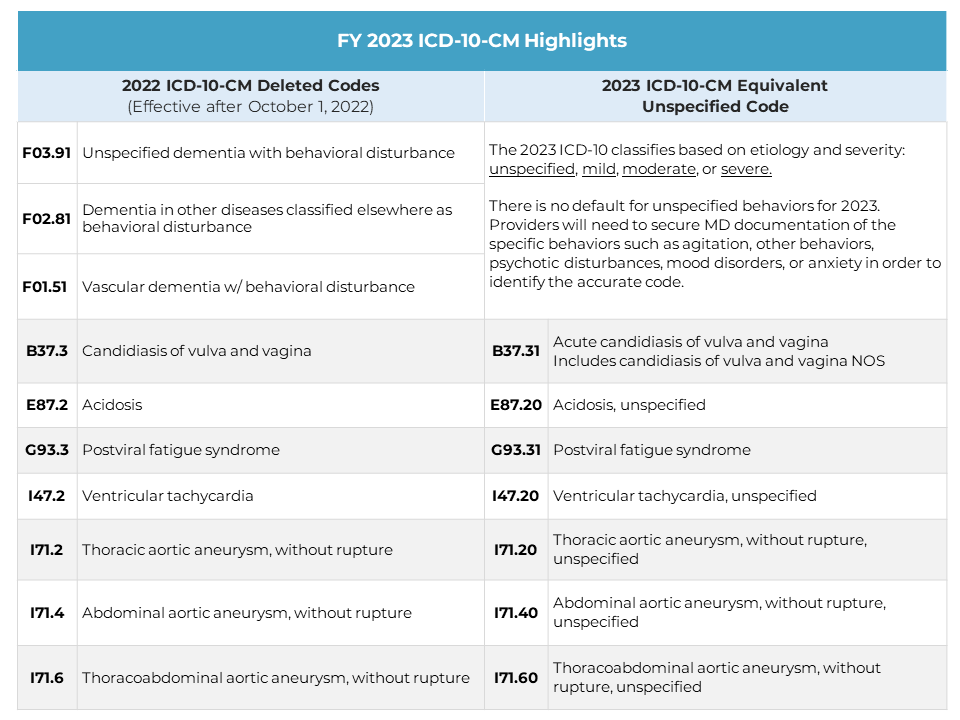As the Centers for Medicare & Medicaid Services (CMS) transitions to the 2023 ICD-10-CM codes with over 1,000 changes, home health providers need to prepare for increased specificity to be reimbursed for services.
The 2023 ICD-10-CM coding changes are effective from October 1, 2022 to September 30, 2023. The changes that require your attention by October 1 include 1,176 new codes, 28 revised codes, and 287 deleted codes.
Changes in the New 2023 ICD-10-CM Code Set
Most of the significant changes in the new code set are the expanded dementia codes, including 69 new codes to identify the stage of severity and the specific behavioral and psychological symptoms of dementia. Failing to accurately document the severity of a patient’s case will face risks of claims rejection.
Here is a list of the main categories that anticipate areas with the highest potential for reimbursement delays based on this year’s code updates.

Steps to Take
Here is a quick rundown of what to do to get you started on your 2023 ICD-10-CM journey:
- Check that the new code sets are applied in your EMR to assure compliance with the changes.
- Identify patients with a diagnosis affected by the changes for both the 1st and 2nd 30-day episode periods.
- Find out if your private or commercial payor partners will be requiring new coding after October 1, 2022 for non-Medicare patients.
- Follow your internal processes for updating your claim codes. Note that it is not necessary to change the codes on your prior Plan of Care (POC) or OASIS assessments. The changes only apply to services rendered after October 1, 2022.
It is All About Timing
CMS requires that new codes be used for all patient services after the October 1, 2022 start date, which affects both new patients and claims arising from patient services that began under 2022 ICD-10 codes on or before September 30, 2022, and continued after October 1, 2022.
For existing patients on the other hand, if subsequent encounters happen on or after October 1st, codes will need to be changed.
However, take note that even if the October 1 implementation date of the 2023 ICD-10-CM code set applies to CMS claims, commercial payors may opt to use a different implementation schedule. It is best to check with your individual payors as some commercial and private payor implementation dates may differ from the CMS date.
Being Strategic means Staying Ahead
To ensure compliance with claims submissions, strategize on how to implement and integrate the 2023 ICD-10-CM code set changes in your organization. Here are some actionable tips:
- Determine cases that have claims with codes that are changing.
- Establish a process for getting new orders for codes that have changed.
- Educate internal coders about the new code sets.
- Collaborate with any external partners who are involved in claims coding to ensure the changes are implemented throughout the organization.
Your coding team or provider should be ready to keep up with all the upcoming changes in coding practices related to the OASIS-E and HHVBP implementation. Since this will directly impact reimbursement values, it will be crucial for home health businesses to maintain optimizing their reimbursements through accurate and strategic coding.

